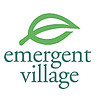I am a person of power
I was asked how I see this playing out and what it means to be cognizant of it in my daily life. That’s a very good question. I honestly feel lame talking about it because it puts the focus on me and what *I’m* doing but I’ll take on the question anyway, since someone asked.
Why am I a person of power?
First of all, I am not poor. I’m not middle class but I’m not poor - which puts me at a distinct disadvantage in many areas but certainly does not exempt me from being a person of power.
Second, I am white and I am a “native” of this country.
Third, I am of a majority faith position. As a Christian am actually in the majority.
Finally, I am not a minority in any other area - I’m straight, I do not have a physical or mental disability and I’m educated…not a college degree but I did receive a very good education through high school and since then have had many opportunities for learning that have equipped me in areas of theology and in my freelance work.
In those ways, I am a person of power in this country. Don’t get me wrong, as a woman and post evangelical I have certainly felt otherwise. And looking at all the churchy conference promotions out right now, I certainly do feel like a minority - - a female leader in the Christian world - - but I don’t deceive myself for a second, I am still a POP (person of power).
I think I also have the advantage of being at a disadvantage in some areas - it leads to empathy to a very small degree. I did not receive a college education in part because I could not afford it. My family was too rich for me to receive gov’t aid and too poor to pay for my education. We live almost hand to mouth in our family. We have enough for the basics and many luxuries but we are of the lower-middle class bracket where one medical crisis could land us on the street. I am a woman in a “man’s world” - namely, the church world but also in America, men still dominate almost everything.
But back to the issue at hand - how this plays out in my daily life is a fantastic question and a challenge. Here are 3 examples of things I have done.
1. I have put myself in places where I am the minority. An example is attending PFLAG meetings (parents and family of lesbians and gays). I am straight and do not have close family or friends who are gay or lesbian so in this group, I am the minority. So I put myself in this place to learn, to grow, to have my “issues” revealed to me to face them and to deal with them, to be vulnerable and to shut my mouth to give voice to the other.
2. I am working with organizations that give voice to those who have none. The homeless, the homebound and those with HIV are the groups I’m working with right now.
3. I would like to figure out how to use my power to empower people of color in our city but I haven’t figured that one out yet. The one area I have chosen to enter into is the international student population which is quite large here. We live across the street from international student family housing and David and I work as tutors there, helping ESL students with their homework. I am trying to find a way to use this more than just “helping them” and hopefully, after this next school year I’ll figure that out a bit.
The reason why I left my previous post pretty open is because I don’t think I have the answers necessarily. I just want to provoke some thought on the issue…as someone on “both sides of the issue” as it were.
Related posts:
- Rose Madrid-Swetman » Change, Power, Access Rose speaks to the issue of power more specifically in...
- relinquishing power It seems pretty clear to me that God calls those...
- Tony Jones is a real person…I think Emergent Gathering reflections 3 Part 1 How I lost at...
- addendum to my post below If you look at the CBE post comments about...
- blog action day: poverty I think about poverty differently after having been poor. I...
Related posts brought to you by Yet Another Related Posts Plugin.
- Posted by Mak at 10:30 am
- Permalink for this entry
- Filed under: Misc.
- RSS comments feed of this entry
- TrackBack URI








So…this is my question: how do we bring justice without entitlement? How do we empower without giving those without power this inappropriate sense of “dammit I deserve it because I am that?” It seems that this entitlement is what grows into the selfish ambition and attitudes of those who gain power, who then take from those without power in order to keep theirs.
Or am I wrong? Is entitlement necessary in the steps to bring justice/empowerment to those without?
that’s a good question. I don’t think that breeding entitlement needs to be part of it. I can honor my children and give them a voice (children are people without power that I neglected to mention but will talk about another time because it’s come up several times now) without making them feel “entitled”.
however, I do think there are things that people ARE entitled to so it’s not a black and white either or sort of thing.
Having said that, when we step aside and give voice to the other, we empower - empowering does not need to communicate the message that you are owed something and that you get it without effort on your part. Empowerment says “you have something in you that our society needs and unless the POP step aside, we will never have the honor of your voice and your presence”
I think maybe some people’s minds make the leap to affirmative action in the way the conservative propaganda speaks of it and I think that’s a false dichotomy to have present in the conversation
You know, I wasn’t even thinking about affirmative action when I wrote the questions.
Let me define that entitlement and things people are entitled to are different in my head. Entitlement is, to me, a demand to give me *insert thing(and it’s usually things, not rights)* because I deserve it, damnit. It’s not a positive word at all for me, it speaks not of civil/human rights/necessities but a heart of “I deserve this and I want it.” It is a disregard for others who also may need something in conflict with your desires. I deal daily with people who feel this entitlement, and it is demanded at the expense of legality (contracts), and sometimes at the expense of my humanity. I am not a person of power in my employment (in terms of my basic human right to be treated with respect is consistently violated), and yet I am - as I enforce said terms and conditions of the contracts, and even though people make demands of me, I still enforce them.
Perhaps these people need empowerment, and I’m just approaching it wrong. How does one empower an adult, give them a voice, and like with children, still create appropriate boundaries?
I think we’re thinking in very different terms. First off, boundaries are my responsibility - I demonstrate to people how they are allowed to treat me. In a client/business relationship, there are different rules and roles than in other relationships and I’m not sure honestly how it would apply because that’s not really what I’m talking about here.
Let’s say I’m at a town hall meeting. As the white middle class educated, english speaking, articulate person I’m a person of power in that room. People will naturally listen to me and take me seriously. A very small way of handing off power to the other is to intentionally allow the Latino (for example) to speak instead of me and to acknowledge their voice as valid by giving them my attention and validating their voice even if I disagree with their position.
If my husband is invited to speak at a conference where there are only men speaking, a way for him to defer power would be to say that he will not speak unless I too am invited to speak - or another woman. Or for me to defer my power to suggest that a black woman be given the stage instead of me.
Or in a less direct way, I defer power when I give up my “right” to drive 2 cars or my “right” to buy a new car. I defer power when I volunteer for an agency that is speaking on behalf of the mentally ill or the homeless or the homebound
I’m sorry, I must not be saying what I’m thinking very well
Nah…it’s just my brain bunny trailing it into some other realm
[...] Isn’t Enough. You can also find some excellent words on power sharing by Makeesha here and here and Change, Power, Access by Rose Madrid-Swetman. I think Kathy Escobar may have started it all [...]